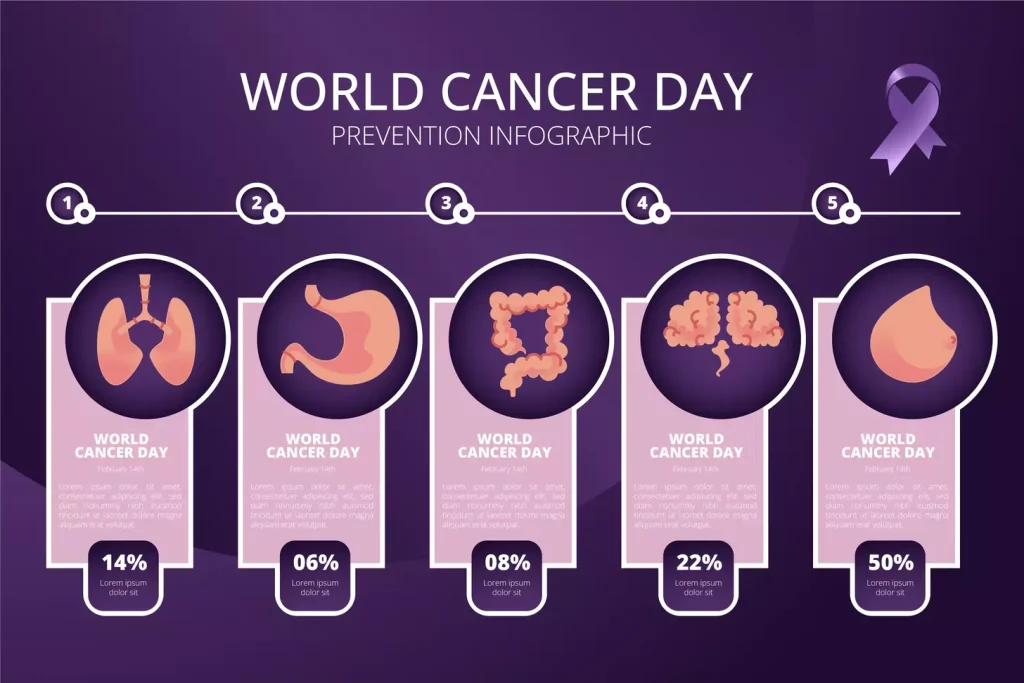
Colon cancer is a big health problem worldwide. It’s expected to cause 3.2 million new cases and 1.6 million deaths by 2040. We need to explore alternative ways to help, not just traditional treatments. Using natural therapies and lifestyle changes can make a big difference. Studies show that green tea and pomegranate might help fight cancer.
At Liv Hospital, we focus on the patient first. We mix standard colon cancer treatments with natural therapies. This way, we aim to make our patients’ lives better and help them get better.

Colon cancer is a big problem worldwide, with more cases being reported. It’s a major health issue. We need to understand the current numbers and future trends to find better treatments.
The World Health Organisation reported in 2018, 1.8 million cases of colon cancer. This number is expected to increase due to the aging population and lifestyle changes. We must think about these numbers when looking at treatments.
The disease is more common in rich countries. But, it’s also getting more common in poor countries because of diet and lifestyle changes.
Doctors usually use surgery, chemotherapy, and radiation to treat colon cancer. Surgery is often the first step for early-stage cancer. It aims to remove the tumor and part of the colon. Studies have looked at different surgical methods and treatments.
Even though these methods are key, there’s growing interest in adding natural therapies. They aim to improve treatment results and patient life quality.

When looking at colon cancer treatment, using both traditional medicine and natural therapies can help a lot. This method treats the cancer and also looks after the patient’s overall health.
Complementary and integrative oncology mixes standard cancer treatments with natural therapies. These include natural remedies, mind-body therapies, and lifestyle changes. They help improve treatment results and quality of life.
This approach doesn’t replace traditional treatments. It aims to make them work better and lessen side effects. It needs teamwork between patients and doctors to make a treatment plan that fits each person.
Natural therapies are key in integrative oncology. They are supported by science and can help in cancer treatment. For example, green tea, garlic, and pomegranate extracts have shown to have anti-cancer effects.
These therapies can help manage symptoms, mitigate side effects, and enhance the effectiveness of traditional treatments. It’s essential for patients to discuss the use to these therapies with their healthcare team.
For complementary therapies to work well in colon cancer treatment, patients and doctors need to talk and work together. Patients should tell their doctors about any natural therapies they’re using or want to try.
Together, patients and doctors can make a treatment plan that uses both traditional and natural therapies. This can lead to better treatment results and a better quality of life.
Nature offers many resources that might fight cancer, like colon cancer. These natural remedies can help alongside traditional treatments. They might make treatments work better.
Green tea is known for its fight against cancer, thanks to EGCG. EGCG stops cancer cells from growing and makes them die. It’s good for colon cancer too. Green tea’s catechins protect DNA and stop harmful substances from forming.
Garlic has allicin, which might fight cancer. Allicin inhibits the growth and death of cancer cells. It could help prevent and treat cancer. Garlic’s sulfur helps get rid of harmful substances.
Pomegranate extract has ellagic acid, which fights cancer. Ellagic acid stops cancer cells from growing and dying. It’s good for colon cancer. Pomegranate also reduces stress and inflammation linked to cancer.
Turmeric has curcumin, which fights inflammation and cancer. Curcumin inhibits the growth and death of colon cancer cells. It’s a strong natural remedy for colon cancer. Curcumin changes cancer pathways for the better.
Even though these natural remedies look promising, talk to a doctor before using them. They can help you use them safely with other treatments.
Traditional medicinal herbs are key in treating colon cancer holistically. They’ve been used for centuries and are now being studied for their anti-cancer properties. These herbs support colon health.
Magnolia berry, or Schisandra chinensis, is used in Asian medicine. It’s known for its adaptogenic properties. Studies suggest it may have anti-cancer effects and support health during treatment.
The antioxidant properties of magnolia berry can help protect cells from damage. This could reduce cancer progression risk.
Danshen, or Salvia miltiorrhiza, is used in traditional Chinese medicine. It’s known for heart health benefits. Research also explores its anti-cancer properties.
Danshen may help improve blood circulation and reduce inflammation. Both are key for colon health.
Ginger root has been used for centuries for its medicinal properties. Ginger has been studied for its ability to reduce nausea during cancer treatment. It may also have anti-cancer effects.
Its active compounds could reduce inflammation in the colon.
Medicinal mushrooms, like reishi, shiitake, and cordyceps, boost the immune system. Research shows they may have anti-cancer effects. They support the immune system during treatment.
They’re being studied for their ability to enhance the body’s natural defenses against cancer.
Exploring these traditional medicinal herbs is important. But, it’s vital to talk to healthcare professionals before adding them to your treatment plan. While promising, integrating these herbs into a care plan should be done under professional guidance. This ensures safety and effectiveness.
We look into how food choices can help with colon cancer treatments. Eating a balanced diet full of nutrients can help manage the disease and improve treatment results.
An anti-inflammatory diet is key for colon cancer patients. This diet includes foods that fight inflammation, like fruits, veggies, whole grains, and lean proteins. Adding anti-inflammatory foods to your diet can lessen some treatment side effects. Foods rich in antioxidants, like berries and leafy greens, are great choices.
Omega-3 fatty acids are beneficial in combating inflammation and are essential for overall health. These healthy fats are found in fatty fish, flaxseeds, and walnuts. Adding omega-3 rich foods to your diet can help reduce inflammation and support your body during treatment.
Other important nutrients like vitamin D, calcium, and fiber are also key for colon health. Getting enough of these nutrients through food or supplements, with a healthcare provider’s advice, is important.
While some foods help with colon cancer treatment, others should be limited or avoided. Processed meats, high-sugar foods, and foods high in saturated fats can worsen inflammation and harm treatment results. It’s important to work with a healthcare provider or nutritionist to create a diet plan that’s right for you.
By choosing foods wisely, patients can play a big role in their treatment. A diet plan that includes all the right nutrients, along with traditional treatments, is the best way to manage colon cancer.
When dealing with colon cancer, mind-body therapies are key. They include meditation, yoga, and stress reduction. These help ease symptoms and boost life quality for cancer patients.
These therapies connect the mind, body, and spirit. They help manage the physical and emotional challenges of colon cancer. By adding them to their treatment, patients can heal better.
Meditation and stress reduction help cancer patients feel better. They lower anxiety and depression. Meditation practices, like mindfulness and guided imagery, help patients deal with treatment stress.
Benefits include:
These techniques are easy to find, in classes or at home. They’re for everyone.
Yoga and gentle movement help with colon cancer symptoms. They mix physical poses, breathing, and meditation for relaxation.
Benefits include:
Adding mind-body therapies like meditation, yoga, and stress reduction to treatment plans helps. Colon cancer patients can improve their healing and life quality.
Healthy lifestyle changes can greatly improve colon cancer treatment results. Our lifestyle choices are key to how well we do in treatment. Making certain changes can boost our health and well-being during and after treatment.
Exercise is very important when you have cancer. We suggest colon cancer patients do moderate activities like brisk walking, cycling, or swimming for 30 minutes daily, five days a week. Exercise can:
Always talk to your doctor before starting any new exercise plan, even more so during treatment. They can guide you on the best activities and how hard to do them based on your health.
Good sleep is vital, even more so when you’re fighting cancer. We advise setting a regular sleep schedule and making your sleep area comfortable. Some tips include:
Poor sleep can make side effects worse and affect your overall well-being. By focusing on sleep and using these strategies, colon cancer patients might see better treatment results and quality of life.
Lowering exposure to harmful toxins is also key during colon cancer treatment. We can do this by:
By making these changes, we can lessen the toxic load on our bodies and help our health during treatment.
In summary, adding these lifestyle changes can greatly improve colon cancer treatment results. By exercising regularly, sleeping well, and reducing toxins, patients can actively contribute to their care and possibly better outcomes.
Creating a care plan that mixes traditional and natural therapies is key for colon cancer patients. This mix helps patients get the best care by using the strengths of different treatments.
Talking well with your oncologist is the first step in a good care plan. You should talk about your treatment options, like holistic treatment for colon cancer and regular therapies. This helps find the best treatment for you.
It’s important to ask questions about your treatment. You might want to know about adding natural colon cancer cure methods to your care.
“Integrative oncology is not about replacing conventional cancer treatment, but about complementing it with evidence-based natural therapies to improve patient outcomes.”
Finding good integrative practitioners is key for quality care. Look for those who know about curing colorectal cancer naturally and keep up with new research in integrative oncology.
| Qualities to Look for in an Integrative Practitioner | Description |
|---|---|
| Experience in Integrative Oncology | Practitioners with a background in integrative oncology can provide valuable insights and guidance. |
| Knowledge of Latest Research | Staying up-to-date with the latest research in integrative oncology is important for effective care. |
| Collaboration with Conventional Healthcare Providers | Practitioners who work well with regular healthcare providers can ensure complete care. |
It’s important to check how you’re doing and change your treatment as needed. This might mean working with your healthcare team to see how different therapies, like colon cancer natural treatment, are working.
By working together with your healthcare team and staying informed, you can make a care plan that meets your needs. This helps you get the best results.
We’ve looked at natural remedies and holistic treatments for colon cancer. These can work alongside standard treatments. By using holistic treatments, patients get a full care plan. Natural remedies, like plant-based therapies, can ease symptoms and boost well-being.
We’ve talked about natural ways to fight colon cancer, like traditional herbs and mind-body therapies. These aren’t a full replacement for standard care. But, they can make treatments more effective when used together. Natural cures and medicines are key in a patient’s recovery.
Patients can work with their healthcare team to make a care plan that fits them. This mix of natural and standard care can lead to better results. It can also reduce side effects and improve life quality for those with colon cancer.
Holistic treatment for colon cancer combines traditional medicine with natural therapies and lifestyle changes. This approach aims to improve overall health and treatment results.
Natural remedies like green tea, garlic, and pomegranate may help fight cancer. But, they should not be the only treatment for colon cancer. They work best when used with traditional treatments, under a doctor’s guidance.
To add natural therapies to your treatment, talk to your oncologist. Also, consider getting help from integrative practitioners. They can help create a complete care plan for you.
Green tea, garlic, pomegranate extract, and turmeric are examples. They have been studied for their ability to slow down cancer cell growth.
Yes, herbs like magnolia berry, Danshen, ginger, and medicinal mushrooms are used in traditional medicine. They are also being studied for their benefits in fighting cancer.
Eating an anti-inflammatory diet is helpful. It should include omega-3 fatty acids and essential nutrients. Also, avoid foods that might slow down treatment progress.
Mind-body therapies like meditation, yoga, and stress reduction can help. They can manage symptoms, reduce stress, and improve well-being during treatment.
Regular exercise, good sleep, and avoiding toxins are key. These lifestyle changes can boost treatment results and support your health.
To make an integrative care plan, talk to your oncologist and find integrative practitioners. Regularly check your progress to adjust your plan as needed.
No, natural methods should not replace traditional treatments. They should be used to support standard treatments, with a healthcare provider’s guidance.
Nutritional interventions are vital in colon cancer treatment. They provide essential nutrients, manage side effects, and may improve treatment outcomes.
Yes, foods high in processed sugars, saturated fats, and pro-inflammatory substances should be limited. An anti-inflammatory diet is recommended.
To find qualified integrative practitioners, ask your oncologist for recommendations. You can also search professional directories or contact organizations focused on integrative oncology.
Subscribe to our e-newsletter to stay informed about the latest innovations in the world of health and exclusive offers!
WhatsApp us